
- How about winning a flight ticket worth up to US$500?
- Become a member by January 31st and get a chance to win!
Dive into organic gardening with our guide. Grow a thriving, eco-friendly garden at home - from planning stages to bountiful harvests!
8min
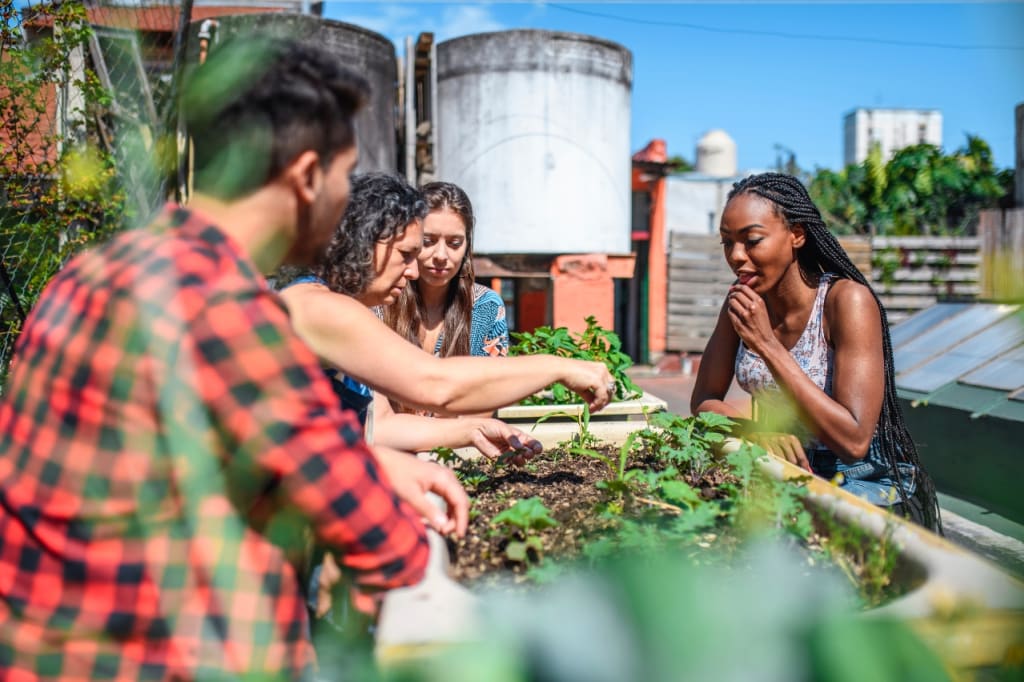
Are you looking for a more healthy and respectful eating habits with nature and your own body? Or perhaps you've stood in the grocery store, looking at those shiny vegetables and wishing you could grow your own.
Organic farming right at home can be the answer for you.
Think about the satisfaction of eating food you've grown yourself. It’s not just about having something on the dinner table—it's knowing that every bite is packed with nutrition, devoid of harmful chemicals, and created through your own effort.
In this article we will discuss the many benefits of starting an organic farm at home and give you practical tips on how to start.
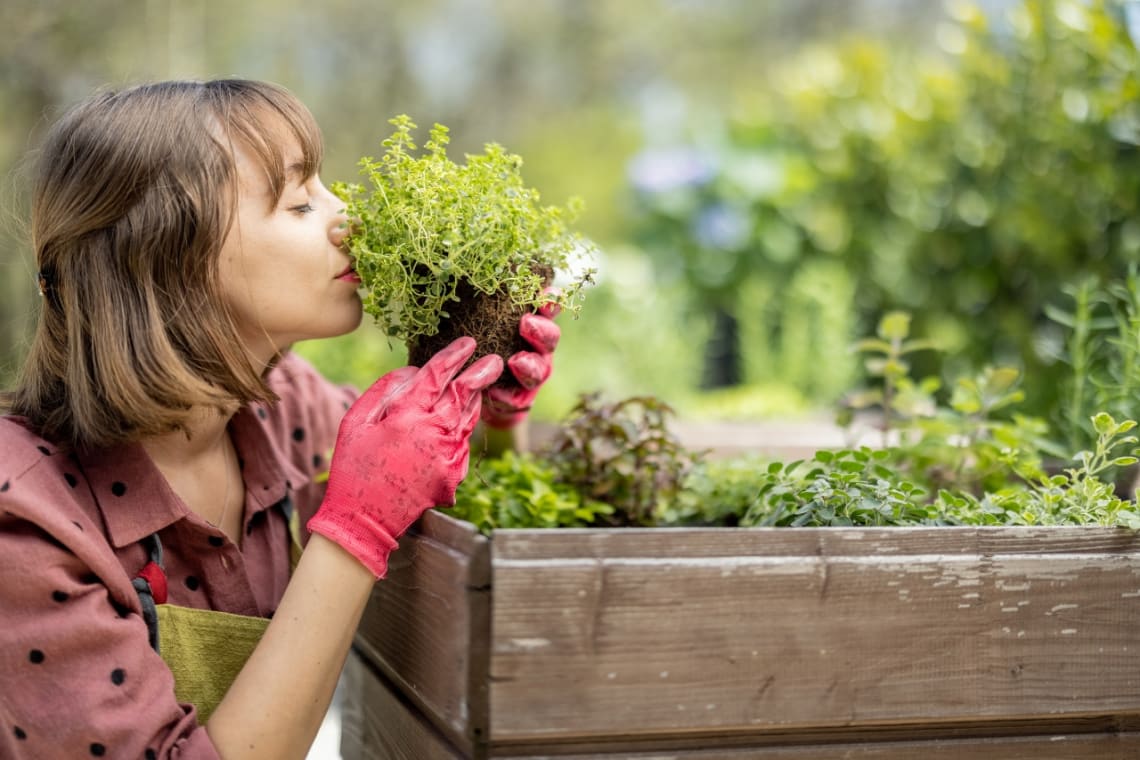
Organic gardening is a practice of cultivating plants in accordance with nature's laws. But it's not just about ditching the chemical pesticides and fertilizers. It's more like stepping into a philosophy where we work hand-in-hand with Mother Nature to cultivate life.
In this practice, you will use techniques that enrich the soil naturally, promoting biodiversity, and sustaining ecosystems. Organic gardenening don't view insects or weeds as enemies but rather indicators of imbalance that can be fixed through natural means.
This form of cultivation rejects synthetic inputs for pest control or fertility enhancement. So when you decide to go organic in your backyard or balcony pots, you're embracing sustainability right at home.
Imagine biting into a juicy tomato that you grew yourself, knowing it's free of harmful chemicals. That’s the joy of having your own organic garden. Believe me, the gains you get from organic gardening make any effort put in totally worth it.
One big reason to start your own organic garden is health. Organic gardening lets you control what goes on and in your plants. You'll know they're pesticide-free because you won't be using synthetic fertilizers or pesticides. This makes sure your food isn’t just fresh—it’s safe.
If flavor matters to you (and why wouldn't it?), going organic could hit the spot, as fruit and vegetables grown organically tastes definitely much better.
Your new hobby can also help Mother Earth by encouraging local wildlife like bees and butterflies—important pollinators—to thrive in a chemical-free environment. But there's more: by composting kitchen scraps for use in your garden, we reduce waste headed for landfills while improving soil fertility—a win-win situation.
Apart from these tangible benefits, there are mental rewards too. Gardening has been shown to lower stress levels. Tending to plants and watching them grow is therapeutic, adding a peaceful element to your routine.
Lastly but importantly, organic gardening saves money. Yes, it does. No need for costly synthetic fertilizers or pesticides; all you need are natural materials which can often be found around the house or bought at minimal cost. Not forgetting how growing your own produce cuts down grocery bills.
To put it simply, we're talking about health here.

Selecting the perfect site for your organic garden is like choosing a home. You want a place that gets enough sunlight, has good soil, and access to water. If you're an urban gardener, don't fret. Even small spaces can turn into lush green havens with container gardening.
The key to preparing the soil is understanding its needs. Do you need more compost? Does it have the right pH balance? Address these questions and your plants will thank you with bountiful growth.
Making compost may sound fancy but it's really just nature’s way of recycling waste into rich soil. So why not start a compost pile in your backyard?
Throw in kitchen scraps like vegetable peels or coffee grounds along with yard trimmings. Just avoid meat and dairy products as they can attract pests.
A little effort today yields black gold tomorrow – nutrient-rich compost that plants love. It may takes several months but is totally worth it when those juicy tomatoes start growing.
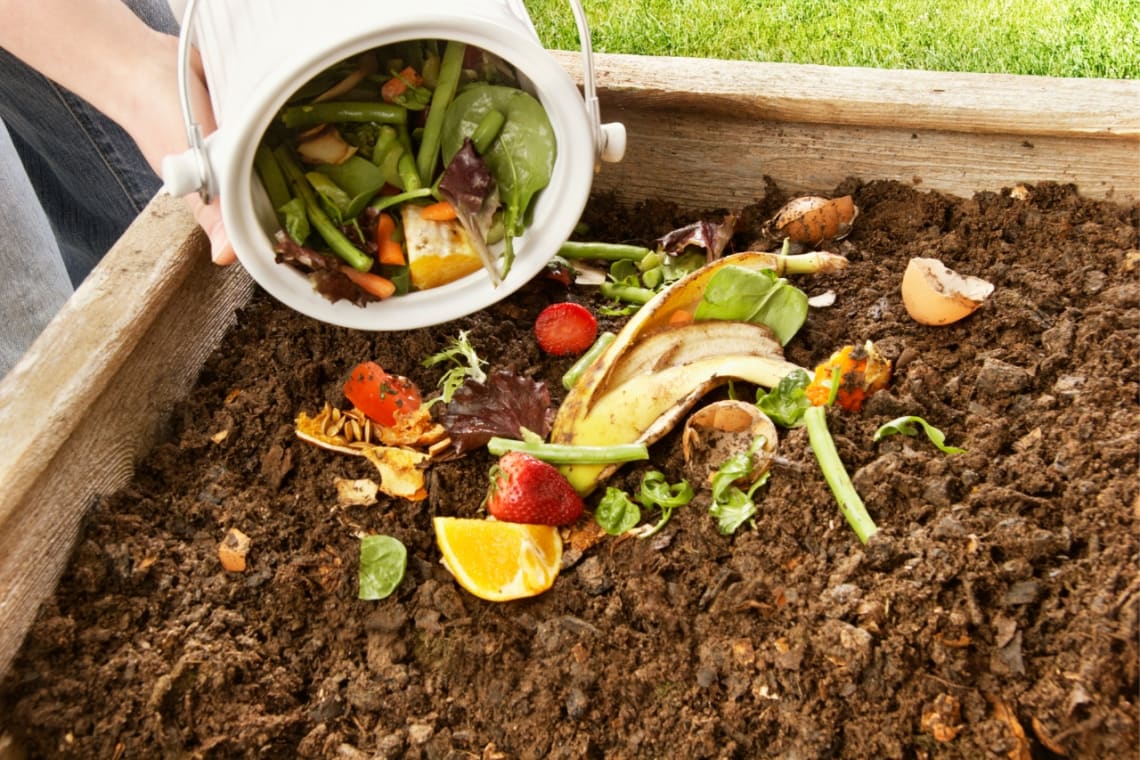
Finally, picking the right plants for your garden hinges on factors like your climate zone, space available, and personal tastes.
For those new to organic gardening, why not start with something easy like aromatic herbs — thyme, rosemary, sage, oregano, coriander, parsley, chives and dill are easy to grow and don't require as much care as fruits and vegs.
Lettuce, radishes, bell peppers and zucchinis are good choices for beginners too- they sprout quickly and can be a great reward.
The key to effective watering lies in understanding your plants' needs. Overwatering can be just as detrimental as underwatering, leading to root rot or waterlogged soil conditions that inhibit plant growth. It's crucial not only to provide sufficient water but also ensure it reaches the roots where it's needed most.
A simple trick is to water deeply but infrequently, encouraging roots to grow deeper into the ground for better access to nutrients and moisture during dry spells. Consider using soaker hoses or drip irrigation systems which deliver water directly at root level while minimizing evaporation losses.
Weeding, although seemingly tedious work, is equally important in an organic garden setup. Weeds compete with your plants for resources such as light, space and nutrients - unchecked weed growth can lead your cherished plants struggling for survival!
To tackle weeds organically means ditching harmful herbicides; instead opt for manual removal techniques like hand-pulling or hoeing off young weeds before they establish themselves firmly into the soil structure.
Mulching serves dual purposes here – acting both as a barrier against weed germination by blocking sunlight exposure whilst retaining moisture levels within soil layers underneath thereby reducing frequency of required watering sessions.
Gardening organically doesn't mean you have to let pests run rampant. In fact, it's about maintaining balance within your garden ecosystem.
The first step is identification. Once you know what's causing trouble, there are organic solutions available.
The key with pests and diseases is prevention. To maximize plant health and reduce the risk of pests or disease, provide your garden with nutrient-rich soil through composting and proper watering. Make sure you're giving your garden the best possible care by:
So, don't stress if you spot a few bugs or signs of disease. Organic gardening isn't about wiping out all pests and diseases, it's about creating balance in your garden.

Gardening doesn't just stop at planting. There's a whole other side to it that can be just as rewarding - harvesting your organic produce and using them in the kitchen. But how do you know when to harvest?
The joy of plucking ripe fruits from your own plants is unparalleled. You'll need patience, though. Timing is everything with organic gardening. Harvest too early or late, and you might not get the best taste or nutritional value.
Different vegetables have different signals for readiness. For example, tomatoes turn red, cucumbers become firm while zucchinis should be harvested when they're still small. Here is a handy guide on when to pick various types of produce.
To ensure freshness, pick only what you plan on eating within a couple days' time (or immediately if possible). Early morning is often the best time for picking because this is when most crops are hydrated after overnight dewfall.
If picked properly without damaging plant structures like stems or roots, these greens will continue producing more yield throughout their growth cycle which makes good practice for sustainability reasons too.
In an organic garden, sanitation isn't about using harsh chemicals. Instead, it involves keeping your garden tidy by removing dead leaves or plants which can harbor disease-causing organisms.
Regularly cleaning your tools also helps prevent the spread of diseases among plants. A simple rinse with water after each use can go a long way towards promoting cleanliness in your home-based farm.
You might be wondering why this matters so much? Well, proper sanitation keeps harmful bacteria at bay thus protecting your crops from potential harm while also ensuring they grow healthily without any chemical intervention.
Crop rotation is another fundamental practice in organic farming that brings numerous benefits to both soil fertility and pest control. It entails planting different types of crops in alternating seasons instead of growing the same plant year-round or season after season on the same plot.
A big part of enjoying garden-fresh produce comes down to storage methods.
For most produce, it is best to keep them in a cool and dark environment. Some veggies like potatoes prefer being stored in slightly damp conditions, while others like onions need dry storage.
Finally! After investing time, effort, and love into your organic garden, the most rewarding part comes: cooking and savoring the fruits of your labor. The vibrant colors, unique flavors, and unmatched freshness of home-grown produce make every meal a culinary delight.
It's important to remember that when you cook with organic produce from your garden, it is best not to ruin their natural goodness by adding artificial seasonings or low-quality oils. Instead, opt for natural oils, herbs from your own herb garden, or spices sourced responsibly. This way you maintain an all-natural cycle in both growing and preparing food.
If you're new to cooking with fresh produce straight out of the ground or off a plant, don't worry! Start simple - maybe whip up a salad using lettuce leaves picked minutes before dinner time; roast some root vegetables drizzled with olive oil for an earthy flavor punch; or a simple stir-fry can really hit the spot.
A key aspect about cooking organically grown foods is understanding their seasonal rhythms so that meals are planned around what’s available at different times throughout the year.
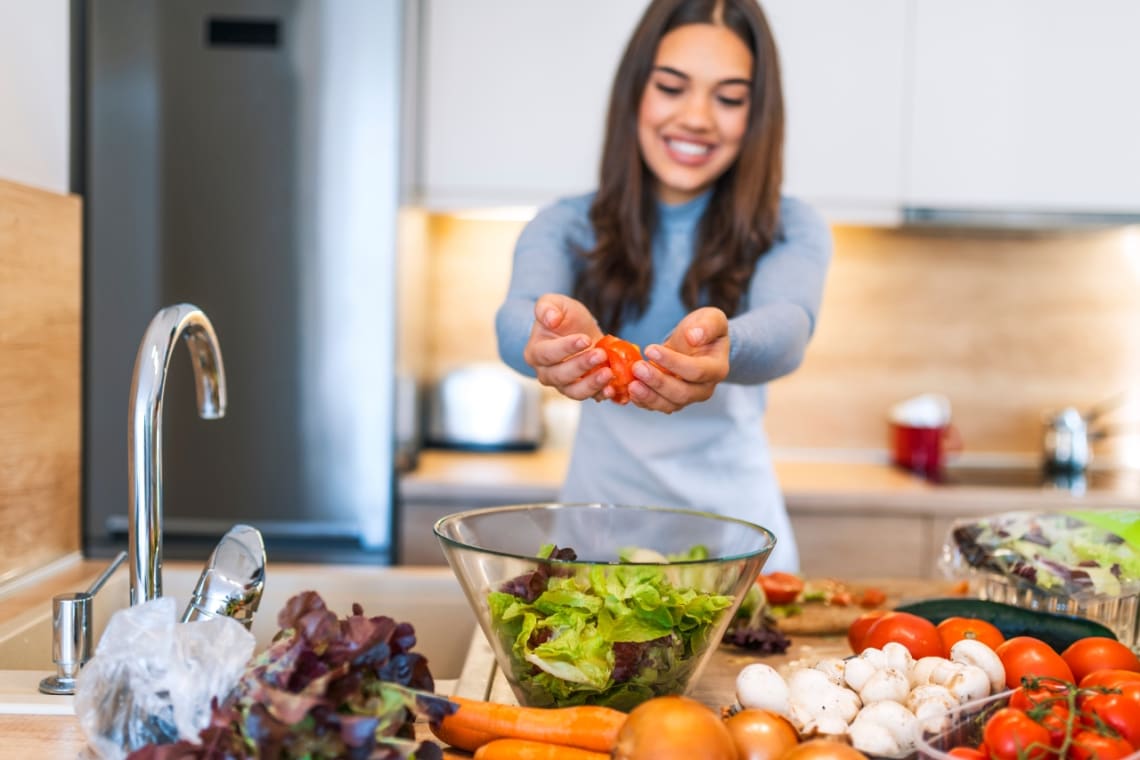
If you're a traveler seeking to make an impact on the world while gaining unique experiences, Worldpackers is your ideal platform. With numerous volunteer positions available in organic farms across the globe, this platform allows you to work hand-in-hand with eco projects and learn all about organic gardening.
In volunteering through Worldpackers' program at one (or many) of these global locations offering opportunities in organic farms, you'll get hands-on experience implementing these principles firsthand! Plus there’s more: accommodations is always included in reward for your help (and sometimes even meals), meaning that you can travel on a budget while meeting like-minded people, connecting with nature and learning new skills.
This chance doesn't just offer practical knowledge—it provides life-changing experiences that will stay with you long after your travels end!
To get started you just need to subscribe to the Worldpackers Community for free and start saving your favorite volunteer positions, until you are ready to get verified in order to contact local hosts.
You can get inspired by reading a fellow traveler experience eco-volunteering at a winery in Sicily.
And learn more about how Worldpackers works: What is a work exchange and how does it work? and Traveling with Worldpackers: your top questions answered.
These are some of the hundreds of volunteering opportunities in eco projects around the globe:
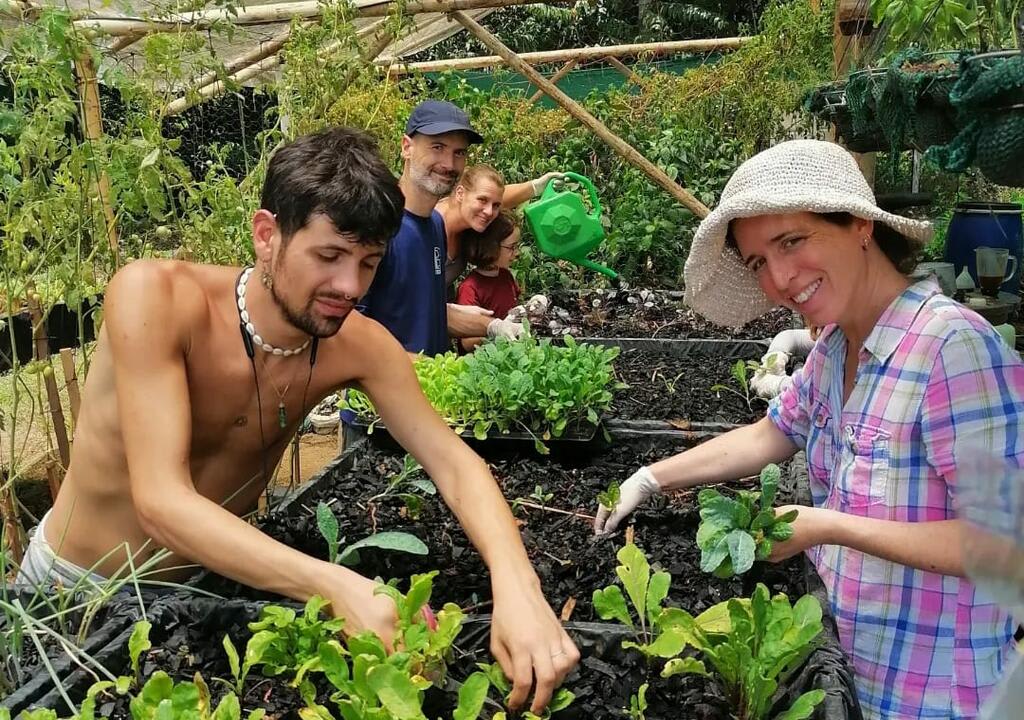
If you like these tips, follow Worldpackers social media to keep up with the news: we are on Instagram and Tiktok.
Write here your questions and greetings to the author